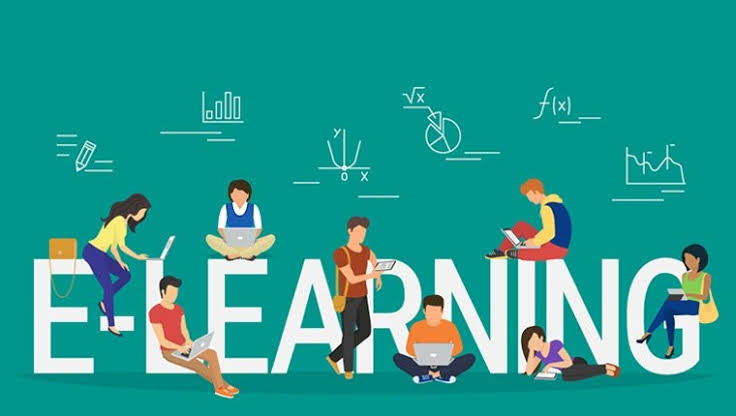KOnline learning has rapidly become a significant component of education worldwide, offering an alternative to traditional classroom-based instruction. In Nigeria, the adoption of online learning has been transformative, providing access to education for many who otherwise face barriers due to geography, economic status, or other constraints. This article explores the numerous benefits of online learning in Nigeria, highlighting its impact on accessibility, flexibility, cost-efficiency, and overall educational quality.
Enhanced Accessibility to Education
Reaching Remote and Underserved Areas
One of the most profound benefits of online learning in Nigeria is its ability to reach students in remote and underserved areas. Traditional education often requires physical presence in urban centers where schools and universities are concentrated, which poses a challenge for students in rural regions. Online learning platforms break down these geographical barriers, enabling students from all corners of the country to access quality education without the need for relocation.
Inclusivity for Diverse Learning Needs
Online learning also promotes inclusivity by catering to diverse learning needs and styles. Students with disabilities or those who require special accommodations can benefit from customized online resources, such as screen readers, subtitles, and adjustable text sizes. Additionally, online platforms offer various forms of content delivery, including video lectures, interactive simulations, and digital textbooks, allowing learners to choose the methods that best suit their learning preferences.
Flexibility and Convenience
Balancing Education with Other Commitments
The flexibility of online learning allows students to balance their education with other commitments, such as work or family responsibilities. In Nigeria, where many students work part-time or full-time jobs to support themselves or their families, the ability to study at their own pace and on their own schedule is invaluable. This flexibility ensures that more individuals can pursue higher education and professional development without sacrificing their livelihoods or personal obligations.
Self-Paced Learning
Online learning platforms often provide self-paced courses, which empower students to learn at their own speed. This is particularly beneficial for students who may need more time to grasp complex concepts or those who wish to accelerate their studies. Self-paced learning fosters a deeper understanding of course material and encourages students to take ownership of their educational journey.
Cost-Efficiency
Reducing Education Costs
Online learning is generally more cost-efficient than traditional classroom-based education. Students save on commuting, housing, and other expenses associated with attending a physical institution. Additionally, many online courses and degree programs are offered at lower tuition rates compared to their on-campus counterparts. This cost efficiency makes higher education more accessible to a broader segment of the population, particularly in a country like Nigeria where financial barriers can be significant.
Availability of Free and Open Resources
The proliferation of free and open educational resources (OER) online further enhances the cost-efficiency of online learning. Many reputable institutions and organizations offer free courses, lectures, and learning materials, allowing students to acquire knowledge and skills without incurring substantial expenses. This democratization of education resources plays a crucial role in empowering learners from all socioeconomic backgrounds.
Quality and Variety of Educational Content
Access to Global Expertise
Online learning provides Nigerian students with access to a wealth of global expertise and diverse perspectives. Through online platforms, students can enroll in courses taught by world-renowned professors and industry experts from prestigious universities and institutions around the world. This exposure to international standards and practices enriches the learning experience and broadens students' horizons.
Diverse Course Offerings
The variety of courses available online is vast, encompassing traditional academic subjects, vocational training, professional development, and niche fields of study. Students in Nigeria can explore and pursue their interests across a wide range of disciplines, gaining skills and knowledge that are relevant to the local and global job markets. This diversity in course offerings ensures that learners can find programs that align with their career goals and personal interests.
Technological Skills Development
Enhancing Digital Literacy
Engaging in online learning inherently involves the use of digital tools and platforms, which helps students develop essential technological skills. As the world becomes increasingly digitized, proficiency in technology is crucial for success in virtually all fields. Online learning equips Nigerian students with the digital literacy and technical skills needed to navigate and excel in the modern workforce.
Preparing for the Future of Work
The future of work is evolving, with remote work and digital collaboration becoming more commonplace. By participating in online learning, students gain experience in virtual communication, collaboration, and project management, which are valuable skills in today's job market. This preparation positions Nigerian graduates to compete effectively on both national and international stages.
Community and Networking Opportunities
Building Global Connections
Online learning platforms often facilitate connections among students from diverse geographical locations and cultural backgrounds. Nigerian students can engage with peers from around the world, exchanging ideas and perspectives that enrich their learning experience. These global connections can lead to valuable networking opportunities and foster cross-cultural understanding and collaboration.
Local Online Communities
In addition to global networks, online learning also enables the formation of local online communities. Students can join forums, social media groups, and virtual study sessions with fellow Nigerian learners, creating a support system and fostering a sense of belonging. These local communities provide opportunities for mentorship, peer support, and collaborative learning, enhancing the overall educational experience.
Conclusion
Online learning has brought about significant positive changes in the Nigerian education landscape. By enhancing accessibility, offering flexibility, reducing costs, and providing high-quality educational content, online learning empowers more Nigerians to pursue education and professional development. The development of technological skills and the creation of global and local learning communities further amplify these benefits, preparing Nigerian students for the demands of the modern workforce and fostering a more educated and connected society. As online learning continues to evolve, it holds the potential to further transform education in Nigeria, making learning more inclusive, equitable, and impactful for all.
